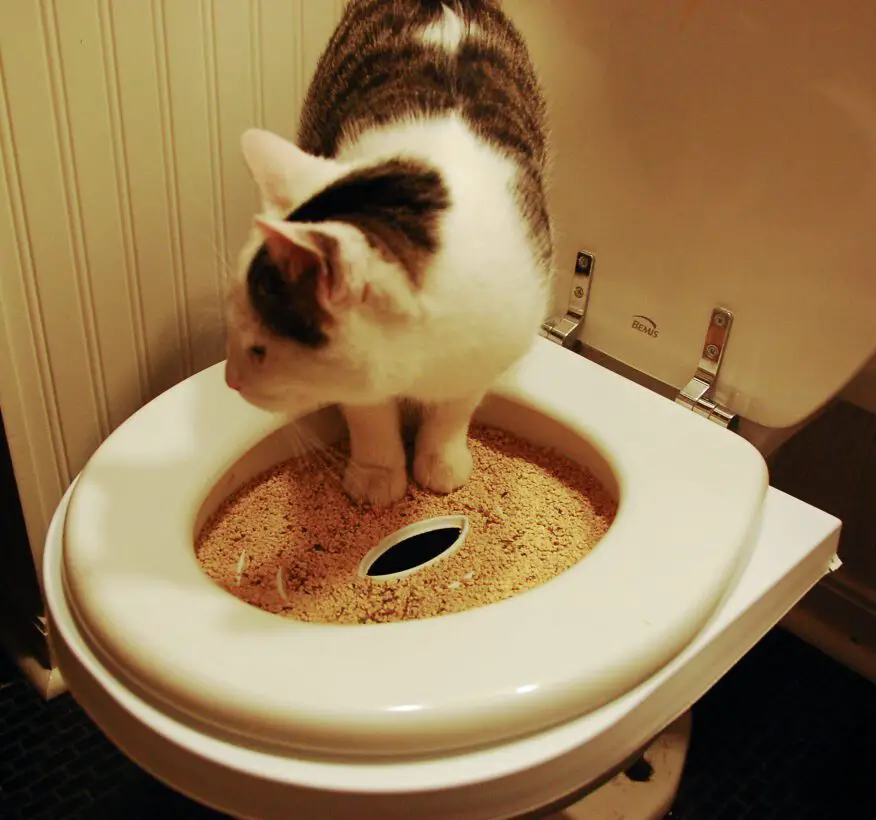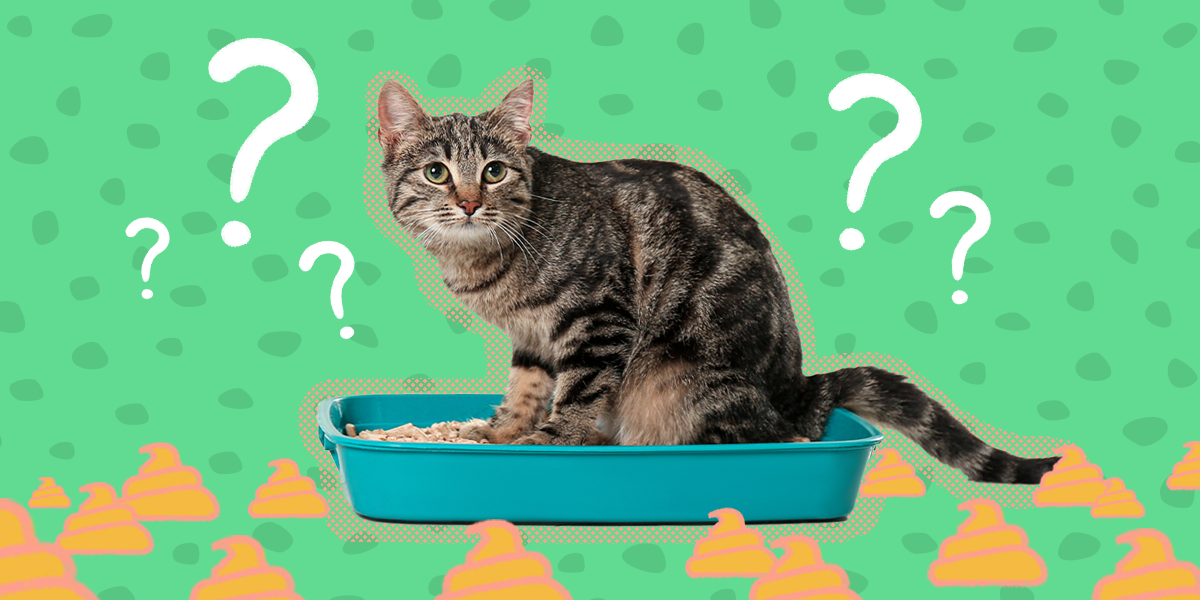Have you ever walked into your living room, only to be greeted by the unmistakable odor of cat poop? You rush to the litter box, expecting the worst, only to find it perfectly clean. Your cat, meanwhile, sits calmly nearby, batting at a dust bunny with an air of complete innocence. This maddening behavior, of cats comfortably peeing in the litter box but choosing the floor for their solid business, is a common puzzle for cat owners. What’s going on?

Image: pet-how.com
This baffling behavior, known as “selective defecation,” can be frustrating, messy, and frankly quite confusing for cat owners. We’ll delve into the potential reasons behind this peculiar feline behavior, exploring the possible causes and offering valuable tips to help you navigate this situation with your cat.
Unraveling the Mystery: Why Your Cat Prefers the Floor for Poop
The reasons behind a cat’s selective defecation can be varied and complex. Here are some of the most common culprits:
Litter Box Aversion
- Dirty Litter: Cats are notoriously clean animals. A dirty litter box can be a huge turnoff, especially for cats with sensitive noses. If the litter isn’t scooped daily, your cat may decide the floor is a more appealing option.
- Unfavorable Litter: Cats have specific preferences for litter. Some prefer a soft, clumping variety, while others prefer a finer, less dusty texture. Experiment with different litters to find one your cat loves.
- Box Size and Location: A litter box that’s too small or positioned in a high-traffic area can discourage your cat from using it. The ideal location is private, quiet, and easily accessible for your feline friend.
- Unfamiliar Scent: Cats can be sensitive to strong smells. If you’ve recently used cleaning products with a strong odor in the litter box area, it may deter your cat from using it.
Medical Issues
- Urinary Tract Infections (UTIs): UTIs can make it painful for cats to urinate, leading them to associate the litter box with discomfort.
- Constipation: If your cat is constipated, their stool may be too large to pass comfortably in the litter box. This can cause them to seek out soft surfaces that feel less restrictive.
- Other Medical Conditions: More serious medical issues like bowel disease, anal gland problems, and even arthritis can make it difficult for your cat to use the litter box.

Image: www.thedodo.com
Behavioral Issues
- Stress and Anxiety: Cats are highly sensitive to their environment. Changes in routine, new pets, or even a noisy household can trigger stress and anxiety, leading to inappropriate elimination.
- Territorial Issues: Cats are territorial animals. If your cat feels threatened by another pet or feels that a new litter box is intruding on their space, they may choose to poop elsewhere.
- Behavioral Condition: In rare cases, cats may engage in destructive behavior, like pooping outside the litter box, as a way of communicating stress or seeking attention.
Decoding Your Cat’s Behavior: Signs and Clues
When it comes to understanding your cat’s selective defecation, observation is key. There are several signs you can look for that may provide clues to the reason behind their behavior:
- Frequency and Timing: Is your cat pooping outside the litter box every single day, or is it an occasional occurrence? Does it seem to happen at a particular time of day?
- Location: Where is your cat pooping? Is it in a specific spot or does it seem random?
- Stool Consistency: Is the stool normal in consistency or is it loose, hard, or containing blood?
- Other Behaviors: Is your cat showing any other signs of illness or stress, such as lethargy, decreased appetite, or changes in their grooming habits?
Taking Action: A Step-by-Step Guide
Once you’ve identified the potential reasons behind your cat’s pooping habits, you can take action. Here’s a step-by-step guide to resolving the issue:
- Rule Out Medical Issues: The first step is to rule out any underlying medical conditions. Take your cat to the vet for a checkup, including a fecal analysis, to determine if there are any medical concerns.
- Clean and Refresh the Litter Box: Thoroughly clean the litter box with a pet-safe cleaner and replace the litter. Experiment with different types of litter to see what your cat prefers.
- Consider Multiple Litter Boxes: If you have more than one cat, make sure you have enough litter boxes – at least one per cat plus one extra.
- Adjust the Litter Box Location: Move the litter box to a more secluded, quiet location.
- Address Stress and Anxiety: Identify potential sources of stress, such as new pets, changes in routine, or loud noise, and take steps to mitigate them. Consider pheromone diffusers, calming toys, or playtime to reduce stress.
- Try a Cat-Friendly Deterrent: If your cat is pooping in a specific spot, spray it with a cat-friendly deterrent spray to discourage them from returning.
Don’t Punish Your Cat
It’s essential to remember that scolding or punishing your cat for pooping outside the litter box is not effective. Cats don’t understand punishment in the same way humans do. Instead of associating the punishment with the behavior, they may simply become fearful of you.
Cat Pees In Box But Poops On Floor
The Bottom Line: Patience and Understanding
Solving the mystery of the cat who pees in the box but poops on the floor requires patience and understanding. It’s crucial to approach the situation with a calm and observant mindset. Don’t hesitate to seek professional help from a veterinarian or a certified feline behaviorist if you’re struggling to address the issue on your own.
Remember, your cat’s behavior is often a signal that something is amiss. By listening to their cues, identifying the root cause of their behavior, and working together to create a comfortable and pet-friendly environment, you can help your furry friend overcome their litter box aversion and restore harmony to your home.






